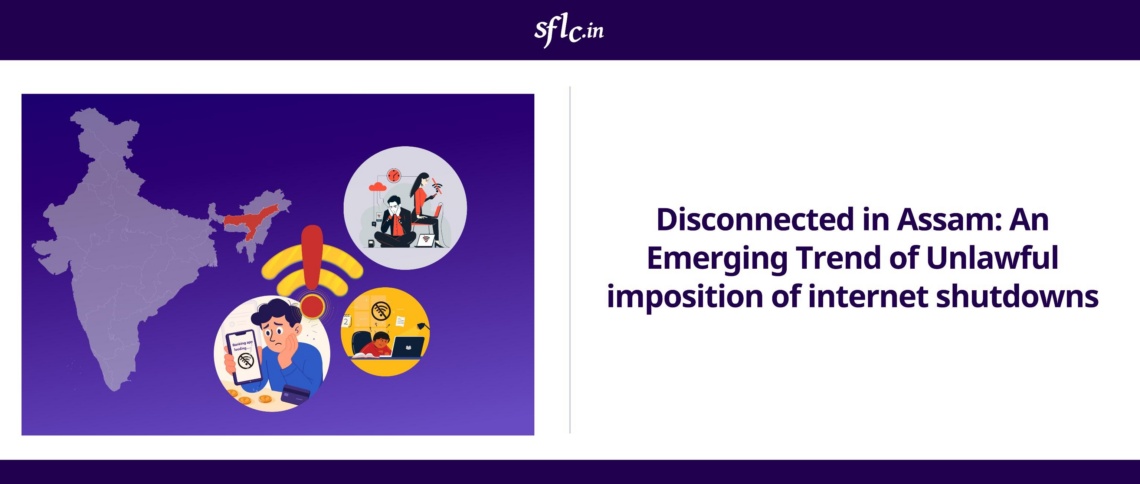Towards a Progressive Cryptocurrency Policy for India
By Satish Babu
1. Introduction
One of the most revolutionary developments in computing in the last decade has been the emergence of an entirely new family of computing artifacts, Cryptocurrencies. This domain has potentially deep implications in monetary policy, privacy, surveillance, Surveillance Capitalism, data protection, anonymity and financial inclusion, particularly in emerging economies.
The rapid development of cryptocurrencies has meant that regulatory frameworks have not been able to keep pace, and cryptocurrencies operate in far-from-clear policy and regulatory environments that vary from country to country.
2. The relevance of Cryptocurrencies
Cryptocurrencies differentiate themselves from the traditional fiat currencies in that they are decentralized, free of entry barriers, not susceptible to controls by national governments, globally usable and intermediary-free. In many situations, cryptocurrencies provide efficient means of storage and transfer of value across the globe.
Cryptocurrencies are used, just like fiat currencies, to store and to transfer value. Cryptocurrencies have several advantages as well as risks:
-
Ease of use for Transactions: Cryptocurrencies can be easy, quick and cheap to use in transactions such as payments and transfers.
-
Financial Inclusion: Given that any end-user with a mobile phone and Internet can make transactions, cryptocurrency may be a feasible platform to enable universal financial inclusion.
-
Security: The core protocols of most cryptocurrencies are secured by cryptographic algorithms, even when there are malicious actors in the ecosystem (unless they are in the majority).
-
Value-added services: There are several crypto-based financial services that have become available, from loans to insurance to escrow. In Sri Lanka, Oxfam has implemented crop insurance on the Ethereum platform while the UN WFP used Ethereum to make grant transfer to refugees in Jordan with considerable time and cost savings
Some of the risks of cryptocurrencies include:
-
Volatility: Many cryptocurrencies have high volatility in the short-run, which may impact speculative investors. Notably, there are now several “stablecoins” that are pegged to a currency, thus removing the speculative aspect.
-
Money Laundering and related issues: Given that parties in a crypto transaction can be anonymous, Governments are very concerned about money laundering. Anti-Money Laundering (AML) laws have been created in many countries. Governments implement also implement KYC norms in Crypto Exchanges where conversion fiat-cryptocurrencies (and vice versa) take place.
-
Lack of Government Oversight: Many governments are concerned about the overall lack of governmental oversight over the crypto economy. However, given that the crypto economy is based on community-based, transparent, algorithmic processes, and also that the size of the economy is a minute fraction of the size of national economies, this criticism is considered addressable.
-
Collateral Security risks: While the core cryptocurrency protocols can resist malicious actors (Byzantine Fault Tolerance), there are associated tasks (such as handling of private keys) that are non-intuitive for the lay-person and there have been crypto lost on account of fraud, social engineering, cyber intrusion, malware attack, hardware crashes and human error.
3. Need for a Progressive Cryptocurrency Policy for India
The position of the Government of India on cryptocurrencies appears to be based on deep distrust, right from the initial response around 2015. This position, perhaps erring on the side of caution in order to protect citizens’ interests, appears to consider cryptocurrencies as a scam or a Ponzi scheme. Subsequent responses from the RBI as well as the Garg Committee in 2019 indicate an apparent hardening of the same position, with stiff jail terms proposed for anyone dealing with cryptocurrencies.
This is an unfortunate over-reaction, perhaps based on faulty understanding of the pros and cons of cryptocurrencies. What India requires is a more nuanced position that allows Governmental regulatory control over specific aspects of the operations of cryptocurrencies, but allowing individuals and institutions to operate them, with full disclosure to the Government. The following are the reasons why we need a better policy approach:
To begin with, cryptocurrencies represent a wave of innovation in FinTech that India cannot afford to miss. Apart from the $280+ billion market cap of cryptocurrencies, about $1.6 billion of investments have been made in 2018/2019 alone to support innovations in crypto. Banning crypto will cause the Indian Developer and Fintech communities to be completely isolated from the rest of the world, reducing India’s global competitiveness in IT in general and Fintech in particular.
Second, Libra, created by the Libra Association led by Facebook, dispels the notion that cryptocurrencies are Ponzi schemes. Admittedly, Facebook has a dismal record on privacy and data protection, but the Libra Association has a number of well-known global corporations as members, who are collectively staking their reputations on Libra (the privacy concerns, of course, need to be clarified and resolved).
Third, the experiences of other countries, including in South Asia, in financial inclusion on cryptocurrency platforms should be recognized by India, and explored for application (even if on a pilot basis).
Finally, India has prided itself in continuously improving the ease of doing business within the country, but the recommendations of the Garg Panel, which appear to be draconian and disproportionate, will be a set-back for the country’s global image as a progressive nation.
Given these factors, India needs to carefully calibrate its response to cryptocurrencies instead of expressing what appears to be a preconceived position apparently based on incomplete information, and at odds with the rest of the world, which has responded with more open–even if skeptical–responses.

Satish Babu is a Governing body member of SFLC.in




